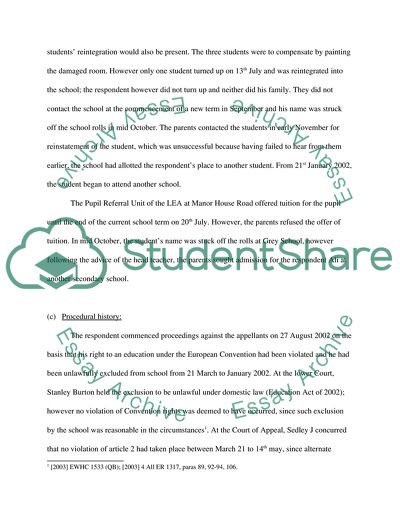Cite this document
(Ali v Headteacher and Governors of Lord Grey School Case Study, n.d.)
Ali v Headteacher and Governors of Lord Grey School Case Study. https://studentshare.org/education/1705831-lawyer-skill-assignment
Ali v Headteacher and Governors of Lord Grey School Case Study. https://studentshare.org/education/1705831-lawyer-skill-assignment
(Ali V Headteacher and Governors of Lord Grey School Case Study)
Ali V Headteacher and Governors of Lord Grey School Case Study. https://studentshare.org/education/1705831-lawyer-skill-assignment.
Ali V Headteacher and Governors of Lord Grey School Case Study. https://studentshare.org/education/1705831-lawyer-skill-assignment.
“Ali V Headteacher and Governors of Lord Grey School Case Study”. https://studentshare.org/education/1705831-lawyer-skill-assignment.


